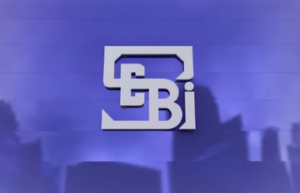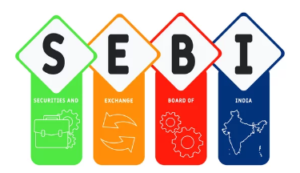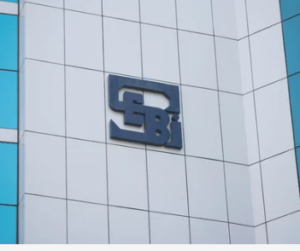SEBI Grade A Examination refers to the recruitment process conducted by the Securities and Exchange Board of India (SEBI) to hire officers at the Grade A level (Assistant Manager) in various streams. SEBI is a regulatory body responsible for overseeing the securities market in India, and it recruits officers to manage its functions efficiently.
1. Streams Available
SEBI Grade A examination is conducted for various streams like:
- General Stream
- Legal Stream
- Information Technology (IT) Stream
- Engineering (Civil and Electrical) Stream
- Research Stream
- Official Language Stream (Rajbhasha)
Each stream has specific educational qualifications that candidates must meet to be eligible.

2. Selection Process
The SEBI Grade A examination selection process consists of three main stages:
- Phase I: Online Screening Examination
- Phase II: Online Mains Examination
- Phase III: Interview
Phase I: Online Screening Examination
This is a qualifying stage, meaning the marks scored here are not counted in the final merit list but are essential to proceed to Phase II. It consists of two papers:
- Paper 1 (common to all streams):
- Duration: 60 minutes
- Maximum Marks: 100
- Syllabus: It includes sections like General Awareness (with special reference to Financial Sector), English Language, Quantitative Aptitude, and Reasoning Ability.
- Paper 2 (stream-specific):
- Duration: 40 minutes
- Maximum Marks: 100
- Syllabus: Depends on the stream (for General stream: Commerce, Accountancy, Management, Finance, Costing, Companies Act, and Economics; other streams have their respective syllabi).
Cut-off for Phase I:
- Paper 1: Minimum 30% marks.
- Paper 2: Minimum 40% marks.
- Overall cut-off: 40% of the aggregate marks across both papers.
Phase II: Online Mains Examination
Candidates who qualify for Phase I are eligible for Phase II. Phase II also consists of two papers:
- Paper 1 (common to all streams):
- Type: Descriptive English
- Duration: 60 minutes
- Maximum Marks: 100
- Syllabus: Essay writing, precis writing, and comprehension.
- Paper 2 (stream-specific):
- Duration: 40 minutes
- Maximum Marks: 100
- Syllabus: Same as the Phase I Paper 2 syllabus, based on the specific stream.
Cut-off for Phase II:
- Paper 1: Minimum 30% marks.
- Paper 2: Minimum 40% marks.
- Overall cut-off: 50% of the aggregate marks across both papers.
Phase III: Interview
- Candidates who clear the Phase II are called for an interview.
- The interview can be conducted either in English or Hindi.
- The weightage of the interview is 15% of the final merit.
3. Exam Pattern Summary
| Phase | Paper | Type | Duration | Marks |
|---|---|---|---|---|
| Phase I | Paper 1 | MCQ (common) | 60 minutes | 100 |
| Paper 2 | MCQ (stream-specific) | 40 minutes | 100 | |
| Phase II | Paper 1 | Descriptive (English) | 60 minutes | 100 |
| Paper 2 | MCQ (stream-specific) | 90 minutes | 100 | |
| Phase III | Interview | – | – | – |
4. Syllabus Overview
Paper 1 (Phase I):
- General Awareness (with an emphasis on current events in the financial sector)
- English Language
- Quantitative Aptitude
- Reasoning Ability
Paper 2 (Phase I and Phase II):
- General Stream: Commerce, Accountancy, Management, Finance, Costing, Companies Act, and Economics.
- Legal Stream: Constitutional law, Securities law, Contracts law, etc.
- IT Stream: Topics related to Information Technology.
- Engineering Stream: Specific subjects related to Civil or Electrical Engineering.
- Research Stream: Topics related to Finance and Economics.
- Official Language Stream: Translation-related subjects and Hindi.
Phase II Paper 1 focuses on descriptive English, including essay writing, precis writing, and comprehension skills.
5. Fees Structure
- General/ OBC/ EWS: ₹1000/-
- SC/ST/PwBD: ₹100/-
The fee is non-refundable and covers the cost of registration and exam conduction.
6. Eligibility Criteria
- Age Limit:
- Maximum: 30 years (Relaxations applicable for reserved categories as per government rules).
- Educational Qualification: Varies for each stream:
- General Stream: Master’s Degree in any discipline OR Bachelor’s degree in Law/Engineering OR Chartered Accountant (CA)/Company Secretary (CS)/Cost and Work Accountant (CWA)/Chartered Financial Analyst (CFA).
- Legal Stream: Bachelor’s Degree in Law.
- IT Stream: Bachelor’s Degree in Engineering (Electrical/IT/Electronics/Computer Science).
- Research Stream: Master’s Degree in Economics/Commerce/Statistics.
- Official Language: Master’s Degree in Hindi with English as one of the subjects.
7. Application Process
- Online Registration: Candidates must apply through the SEBI website by filling in details and uploading relevant documents like a photograph, signature, and educational certificates.
- Payment of Fees: Through online payment modes (credit card, debit card, internet banking).
8. Final Selection
The final merit list is based on the combined score of Phase II and the Interview. The weightage of marks in the selection process is as follows:
- Phase II: 85% weightage.
- Interview: 15% weightage.
The candidates who make it to the merit list are appointed as Grade A officers in SEBI.
Conclusion: SEBI Grade A examination is a highly competitive examination, demanding a thorough understanding of finance, economics, and other relevant subjects based on the stream. It offers an excellent opportunity to work with India’s securities market regulator and be part of a prestigious organization.

